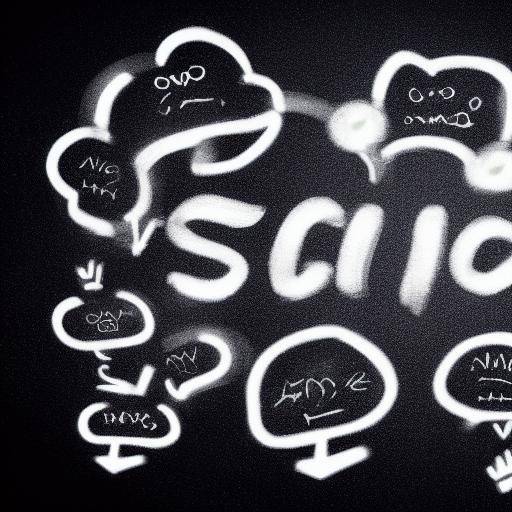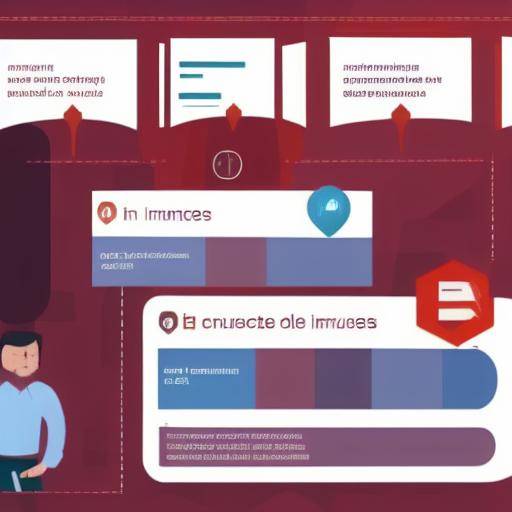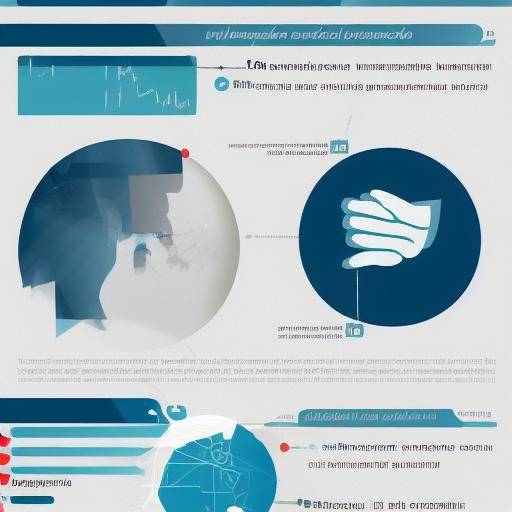
Emotional intelligence plays a key role in our daily interactions, especially in effective communication. What exactly is emotional intelligence and why is it so relevant in our interpersonal relationships? In this article, we will explore in depth the impact of emotional intelligence on effective communication, as well as communication skills that are affected by emotional intelligence. We will also discuss how these skills can influence our interpersonal relationships.
Introduction
The importance of emotional intelligence has become a topic of great relevance in various fields, from leadership and business management to personal relationships. The ability to recognize, understand and manage our own emotions, as well as those of others, is a crucial factor in how we communicate and build meaningful relationships. In this article, we will explore how emotional intelligence directly impacts effective communication and how to develop these skills can enrich our interpersonal interactions.
History and Background
The notion of emotional intelligence began to gain relevance in the 1990s when psychologist Daniel Goleman popularized the concept in his book "Emotional Intelligence". However, its roots go back to previous decades, with figures like Peter Salovey and John Mayer, who coined the term and contributed to the theoretical development of this field.
Over the years, emotional intelligence has evolved considerably, from a relatively unknown concept to a generalized area of study and interest. The incorporation of emotional intelligence in psychology, education and the workplace has marked a significant change in the way we understand and address our emotions in different contexts.
Analysis in Deep
Emotional intelligence has a significant impact on the way we communicate. By having a greater understanding of our own emotions, we are better equipped to express ourselves in a clear and assertive way. This ability not only allows us to convey our thoughts effectively, but also helps us to understand the emotions of others, which facilitates more empatic and understanding communication.
Comprehensive review
The practical application of emotional intelligence in effective communication leads us to reflect on the best practices and strategies that can optimize our interactions. By developing active listening skills, empathy and assertiveness, we can foster more open and constructive communication in all areas of our lives.
Comparative analysis
It is important to note that communication skills are strongly influenced by emotional intelligence. While emotional intelligence focuses on self-knowledge and emotional management, communication skills encompass the ability to deliver messages clearly, persuasively and effectively. Although they are two different concepts, they are complemented in a meaningful way, as effective communication requires the proper management of both their own and others' emotions.
Practical Tips and Accessible Recommendations
Developing emotional intelligence and improving our communication skills is a continuous process that requires practice and dedication. Some practical tips that can help in this regard are:
- Practice active listening: dedicate time to understanding emotions behind words.
- Recognize and manage your own emotions: learn to assertively express what we feel.
- Cultivate empathy: put yourself in the place of the other to understand your point of view.
- Looking for feedback: being open to receiving constructive criticism to improve our communication skills.
Industry Perspectives and Expert Reviews
Experts in psychology, communication and leadership have provided their views on the importance of emotional intelligence in effective communication. According to specialists, the integration of emotional intelligence in the workplace can have a positive impact on productivity, team cohesion and effective conflict resolution. This holistic approach to communication can transform labour dynamics and strengthen relationships between colleagues and leaders.
Case Studies and Real Life Applications
An outstanding example of the application of emotional intelligence in effective communication is seen in the context of leadership. Leaders with high levels of emotional intelligence are often able to inspire, motivate and direct their teams authentically, resulting in more effective communication and greater cohesion among team members. In addition, emotional intelligence in the educational field has demonstrated its ability to improve the school climate, reduce school harassment and foster a more positive and collaborative learning environment.
Future Trends and Predictions
As awareness of the importance of emotional intelligence continues to grow, organizations, educational institutions and leaders of all kinds are expected to seek to integrate these skills into their practices and policies. In addition, training in emotional intelligence is expected to become more common both in the educational and business spheres, with the aim of cultivating more effective communication skills and strengthening interpersonal relationships.
Conclusion
In short, emotional intelligence plays a key role in effective communication and in building strong interpersonal relationships. By understanding and managing our emotions consciously, we can significantly improve our communication skills, which in turn has a positive impact on our personal and professional relationships. By promoting the development of emotional intelligence and communication skills, we can foster a more empathic, collaborative and harmonious environment.
Frequently asked questions
1. What areas of everyday life influences emotional intelligence?
Emotional intelligence has a significant impact on various aspects of life, including interpersonal relationships, decision-making, conflict resolution and stress management.
2. What are the key competencies of emotional intelligence?
Key competencies of emotional intelligence include self-consciousness, self-regulation, motivation, empathy and social skills.
3. How can I improve my communication skills through emotional intelligence?
To improve communication skills through emotional intelligence, it is essential to develop active listening skills, proper management of emotions and empathy towards others.
4. What is the impact of emotional intelligence on leadership?
Emotional intelligence is fundamental to effective leadership, as it allows leaders to understand and motivate their teams more effectively, as well as to foster a positive working environment.
5. Can people develop their emotional intelligence over time?
Yes, emotional intelligence can develop over time through practice, self-reflection and learning new skills.
6. What is the relationship between emotional intelligence and conflict resolution?
Emotional intelligence helps people manage conflicts more effectively by increasing their ability to understand their own and other emotions, which facilitates negotiation and the search for mutually beneficial solutions.
Concluding, emotional intelligence is a crucial factor in effective communication and the strengthening of interpersonal relationships. In developing these skills, we not only improve our ability to express ourselves in an assertive and understanding way, but also contribute to the creation of more harmonious and collaborative environments, both in the personal and professional spheres.






















































